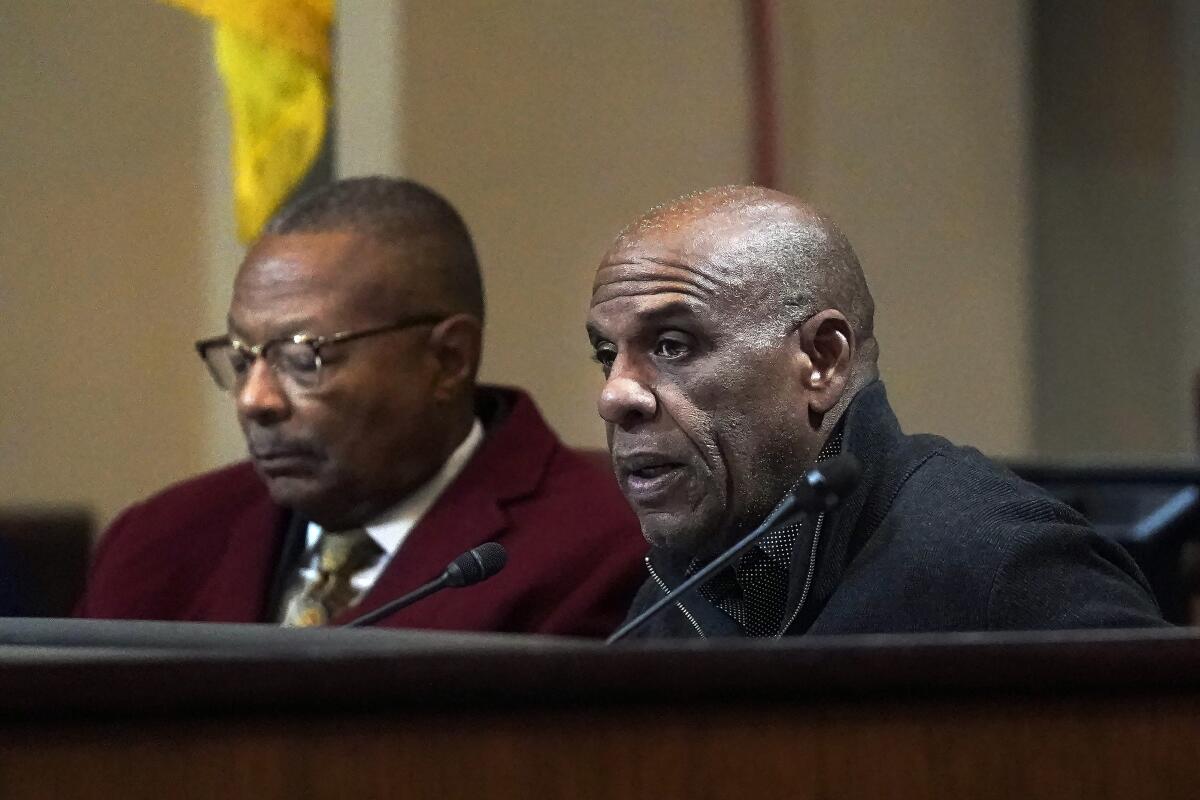After Assembly issues apology for California’s role in slavery, some reparations bills die in Senate

SACRAMENTO — The California Assembly on Thursday voted to issue an official apology for the state’s role in slavery and the systemic racism that ensued, but other bills meant to offer reparations died shortly afterward in the Senate.
The apology is in a bill authored by Assemblymember Reggie Jones Sawyer (D-Los Angeles) that accepts responsibility for “all of the harms and atrocities committed by the state” and is part of a hard-fought legislative package for reparations for descendants of African Americans who were enslaved.
“Not only is the apology letter important, it’s what we do after — it’s whether or not we go ahead and fulfill the dream of what my ancestors wanted, which is to fully make us part of the American dream,” Jones-Sawyer said on the Assembly floor, receiving hugs and applause after the passage of AB 3089. The bill now moves to the Senate.
Less than an hour later, other reparations-related bills died in a key fiscal committee as the state grapples with a massive budget deficit.
Two bills by Sen. Steven Bradford (D-Gardena) were held back by the Senate Appropriations Committee. The legislation would have offered property tax credits and financial aid to purchase property to descendants of African Americans who were enslaved.
“We know we build generational wealth through home ownership, and African Americans have been denied home ownership since the Emancipation Proclamation. Their freedom, it was about land,” Bradford said in Sacramento on Thursday.
Bradford said he was disappointed but pointed to other reparations bills that survived Thursday’s “suspense file” process — the ritual culling of any legislation with a price tag that is sometimes used as a way for Democratic leaders who control the Legislature to eliminate controversial bills.
Bradford’s failed bills were not part of the primary reparations package promoted by the California Legislative Black Caucus, of which he is a member. Reparations advocates have been divided on the best success strategy after years of deliberation as they aim to create a first-in-the-nation plan to offer tangible benefits to descendants of the enslaved. The caucus has so far stopped short of calling for cash payments to those eligible — a priority of some Black advocacy groups but an idea that polling has shown is overwhelmingly unpopular with voters.
The Black Caucus’s core reparation bills are still moving through the legislative process, including proposals to limit solitary confinement in prisons and jails and compensate Californians for land taken by eminent domain.
Sen. Anna Caballero (D-Merced) chairs the Senate Appropriations Committee and pointed to the state’s financial problems as reason for the killing of Democratic-backed bills on Thursday.
“The next couple of years will be difficult for the legislative and budget processes,” she said. “Finding balance will be critical to ensure that we can continue to make our government work efficiently and prudently.”
Jones-Sawyer’s apology bill does not have a large price tag and is the first step for the Black Caucus as it pushes for the passage of the rest of its reparation legislation.
“It is undeniable that our systems of government have been complicit in the oppression of African Americans. ... California’s history is tarnished by the subjugation of Black people,” Assembly Speaker Robert Rivas (D-Salinas) said in support of AB 3089 on Thursday. “It is a wound that still needs to heal.”
The bill saw unanimous support from Democrats, but several Republicans abstained from voting on it, including Assembly Republican Leader James Gallagher of Yuba City, who called slavery “a terrible stain on our history” but took issue with pieces of the bill that say the state is still denying Black residents some rights and that police shootings are “state-sanctioned violence.”
“We have made tremendous progress toward a more equal society,” Gallagher said in a statement.
More to Read
Sign up for Essential California
The most important California stories and recommendations in your inbox every morning.
You may occasionally receive promotional content from the Los Angeles Times.











